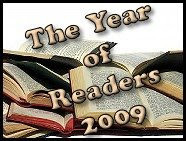The NY Times had a really interesting article on the use of Special Collections libraries in teaching. The author followed John Pollack, UPenn Rare Book Specialist, as he taught a class using 500 year old books. He explains that this kind of teaching is a growing trend, and I think fairly effectively explains why it's important.
Still, I wanted to add my two cents. I took a couple of classes like this in college, and it really is a moving experience. It's also more than that, as John Pollack says "these materials also are wonderful teaching tools that pose questions about how we know what we know." When I first had the opportunity to really viscerally interact with a book printed by the Gutenberg Press, the tenuousness of some of our knowledge about the past really hit home. There are great classical authors whose works we have only because of one surviving book, or even less than that. Further the awareness that this information comes from real people, with just as many foibles, mistakes, and biases as people have today, really hits home. We live in a world where we are too likely to give instant credence to the authority of the written (or typed) word, and any lesson that reminds us that the authors were only human, is a good one.
Beyond that, there is also just something beautiful about the immediate connection to the world of generations ago. To hold a book in your hands, and see the notes in the margins made by someone else 400 years before you were born, can be an intimidating experience. Humanity really isn't the neatly organized succession of eras and periods that history often makes it out to be. Instead it's one long continuous stream, constantly reacting to what has come before it, and what it thinks is coming up ahead.
Friday, November 7, 2008
Subscribe to:
Post Comments (Atom)

No comments:
Post a Comment